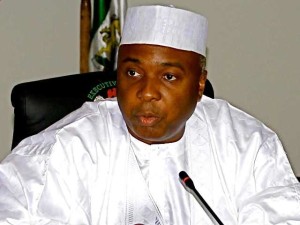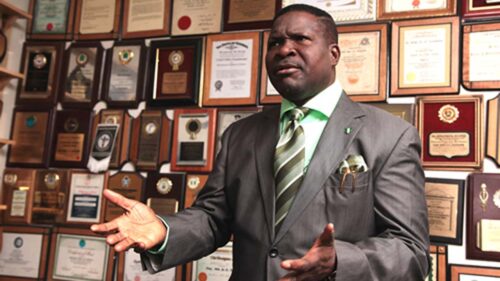Senate urges professional bodies on sustainable development

The President of the Senate, Dr Bukola Saraki, has urged professional bodies in the country to channel their competencies to the sustainable development of the country.
He made the call while declaring open a public hearing organized by the Senate Committee on Establishment and Public Service in Abuja.
The hearing was on three Bills: Chartered Institute of Entrepreneurs Bills 2016, National Institute for Legislative Studies Act 2010 and Institute for Chartered Biochemists and Molecular Biologists.
Saraki, who was represented by Senate Deputy Minority Leader, Sen. Emmanuel Bwacha said that the Senate had devoted considerable amount of time in considering Bills that would fast track economic recovery and ensure stability of goods and services.
“That is why professional bodies are challenged to channel their competencies toward the development of the economy.
“The Public Procurement Act which was passed by the Senate is aimed at putting Made-In-Nigeria goods in the fore front of procurement process in our Ministries, Departments and Agencies.’’
He said the Public Procurement Act would provide room for the establishment of local industries and entrepreneurs would be encouraged to produce on a large scale.
According to him, the National Institution for Legislative Studies Act signed into law by former President Goodluck Jonathan provides services to the National Assembly.
“It was first established in 2003 when it was then called Policy Analysis and Research Project as a capacity building institution in the National Assembly.
“For the past 14 years, the institute had helped to strengthen the capacities of legislators and ensure that the positions and proposals advanced by the National Assembly are informed by requisite research and analytical support.
“The legislative arm of government is the mainstay of every functional democracy. Therefore every establishment promoting the constitutional assigned laws and functions of the parliament through research, advocacy, teaching, networking and other related activities needs strengthening,” he said.
Saraki noted that the institution was seeking among others a change of name from the National Institute of Legislative and Democratic Studies.
In a remark, Chairman of the Committee, Sen. Emmanuel Paulker said that the Chartered Institute of Entrepreneur Bill was aimed at regulating and controlling the practice of entrepreneurship.
“It also aims at developing entrepreneurs through updated counseling on the management of small and medium term businesses.’’
He said that the process of law making was encompassing and a painstaking process and as such, inputs from stakeholders and members of the public would be needed.
The institute, in a memorandum said that the call for the amendment to the Bill was in recognition of the emerging developments that required a robust legal framework to enhance powers of the institute to develop the Nigerian legislature.
On her part, Prof. Sylvia Malomo, President Nigerian Society of Biochemistry and Molecular Biology said that the society was an umbrella organisation of all biochemists and molecular biologists and related fields.
She said that the organisation was not a trade union and had no regulatory power over its membership.
“An as such we do not have a chartered status with the responsibilities of among other things determining standards of knowledge by persons seeking to become registered biochemists and molecular biologists.’’
She said that being a fast developing science, there was the need for strictly regulated codes of conduct for scientists in those areas.
Institute of Legislative Studies to National Institute for Legislative and Democratic Studies.
In a remark, Chairman of the Committee, Sen. Emmanuel Paulker said that the Chartered Institute of Entrepreneur Bill was aimed at regulating and controlling the practice of entrepreneurship.
“It also aims at developing entrepreneurs through updated counseling on the management of small and medium term businesses.’’
He said that the process of law making was encompassing and a painstaking process and as such, inputs from stakeholders and members of the public would be needed.
The institute, in a memorandum said that the call for the amendment to the Bill was in recognition of the emerging developments that required a robust legal framework to enhance powers of the institute to develop the Nigerian legislature.
On her part, Prof. Sylvia Malomo, President Nigerian Society of Biochemistry and Molecular Biology said that the society was an umbrella organisation of all biochemists and molecular biologists and related fields.
She said that the organisation was not a trade union and had no regulatory power over its membership.
“An as such we do not have a chartered status with the responsibilities of among other things determining standards of knowledge by persons seeking to become registered biochemists and molecular biologists.’’
She said that being a fast developing science, there was the need for strictly regulated codes of conduct for scientists in those areas.










